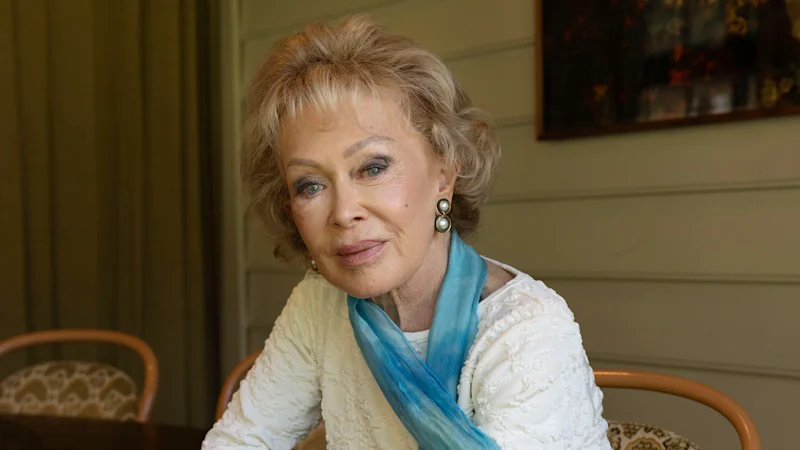Copyright theage

“Prime ministers?” I say. “Prime ministers,” she agrees. D'Alpuget was raised as the single, adored child of her Darling Point household. Her father, Louis d’Alpuget, was a famous yachting journalist, a cigar-smoking, Hemingway-esque figure who loved outdoor sports and women. He taught his daughter how to fight, sail, tie knots, fish, fire a gun and set a trap. He had affairs, which greatly distressed Blanche’s mother Josie, and her distress was very evident to young Blanche. Once, in extremis, Josie burst into her young daughter’s bedroom, threatening suicide. D'Alpuget says that experience is “wedged very deep” in her. “In the pure virgin gold of a child it was a big thumbprint,” she says. “That was part of a cumulative dynamic between them, and I think it did make me determined never to be dominated by a man.” Louis d’Alpuget was charming but could be what we would now call abusive. When 17-year-old Blanche began an affair with a much-older, married Polish man, her father beat her up, and she fled the family home. Ejected by a women’s hostel on morality grounds, the young d’Alpuget tried to rent a flat in Potts Point. She was raped by the real estate agent who showed it to her as his secretary stood outside the door. In the book d’Alpuget is quoted as saying, about this incident, that “it made me realise that one is responsible for one’s own life and what happens”. What did she mean by that? “I remember where I was,” she recounts. “I was standing next to the El Alamein Fountain [in Kings Cross] and I just surveyed where I was, where I had come from, and what I had done to get there. “I had this realisation. I suddenly grew up in five minutes.” What were you thinking? “I was telling myself, ‘I am responsible for myself’ … I never had that victim attitude. I thought, ‘Everything has cause and effect’.” I ask her what she bore responsibility for. “I bore the responsibility of being foolish and naive enough to tell him I’d run away from home.” She pauses and says, with some heat: “And his bloody secretary stood guarding outside so nobody would come and interrupt him. She knew, and I wasn’t the first.” The strength of male sexuality is a theme of d’Alpuget’s conversations in the book. She says women don’t understand “the force of testosterone”. I ask whether men have some obligation to control this force. “Of course, and they try to,” she says. “They’re civilised into doing that but it’s an animal that will escape. It’s a wild animal that will try and get out, and it does.” As we finish off our mains our lovely waiter supplies petit fours, unasked for. Some of the most affecting parts of the book are about d’Alpuget’s spiritual explorations, and her thoughts on love and grief. She describes her mother’s last days and how, after her mum died, peacefully, d’Alpuget’s first impulse was to ring her up and say, “Hey Mum, guess what?” to discuss the experience. As we nibble the teeny treats – a meringue and a carrot cake – we discuss how much grief can surprise you. “It comes up and jumps on you,” she says. Death, she says, “is inexplicable. It’s a mystery.” She lights up talking about her nearly three-year-old granddaughter, and how much she loved motherhood. She was estranged from her son, Louis, for a period during his adolescence, but now they are close and talk several times a week. D’Alpuget has always been a spiritual seeker, something she puts down to an out-of-body spiritual awakening as a child and, later, her time in Java in the 1970s, which was a “mystical” place, she says. Part of her spiritual practice now is gratitude. “One of the main keys to a happy life is gratitude because it turns the ordinary into something beautiful. It raises your morale.” I ask her what she feels grateful for. “Everything!” she cries. “The sunshine, those plants, the way the palm trees are moving. Lunch! You!” The photographer wants to get some portraits of d’Alpuget and moves her to a light-filled room next to the cottage garden. Sun streams in as butterflies cruise the herbs outside. D’Alpuget fusses over her appearance, which is flawless, while posing like a proper sport for her photographs. Afterwards, I walk her through the gardens to her waiting driver. I feel grateful, too. Start the day with a summary of the day’s most important and interesting stories, analysis and insights. Sign up for our Morning Edition newsletter.



